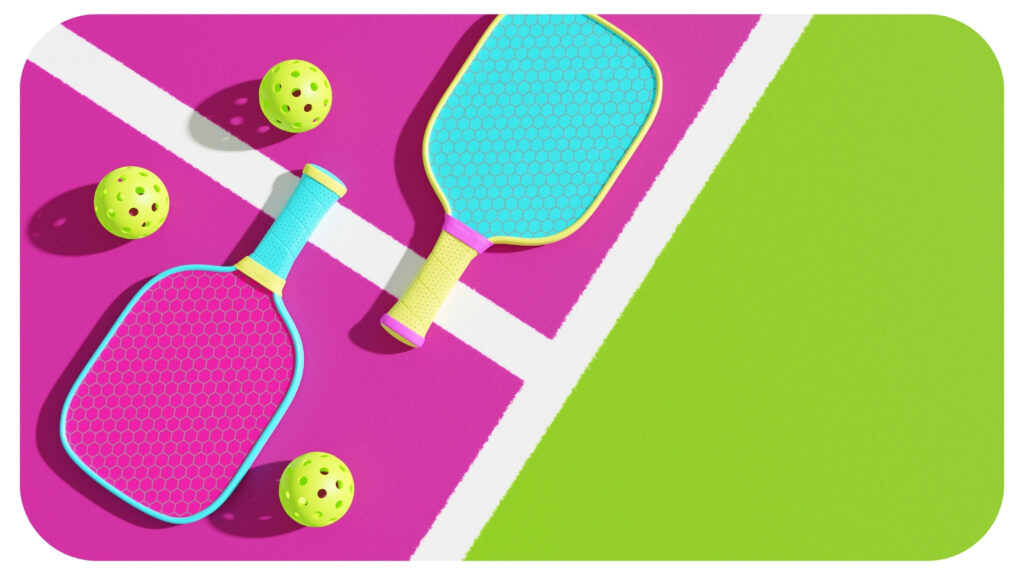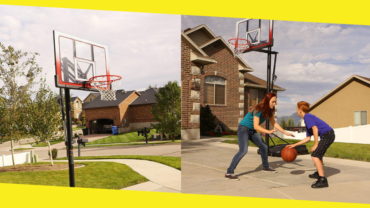Game, Set, Health: How Pickleball Can Improve Your Well-being
This post was last updated on August 25th, 2024

In recent years, the sport of pickleball has exploded in popularity across the globe. From community centers to retirement communities, people of all ages are picking up paddles and hitting the court. What makes this game so appealing? Well, beyond the fun and social aspects, pickleball offers a myriad of health benefits that can significantly improve your overall well-being.
Let’s delve into how this seemingly simple sport can make a big impact on your health.
Physical Fitness
Pickleball is a fantastic way to stay physically active without putting excessive strain on your body. The game involves a combination of quick bursts of movement, hand-eye coordination, and strategic thinking. Players constantly move around the court, engaging in short sprints to reach the ball and making swift lateral movements to cover the ground.
The nature of pickleball makes it an excellent cardiovascular workout. By keeping your heart rate elevated throughout the game, you can improve your cardiovascular health, boost endurance, and burn calories. According to the International Pickleball Teaching Professional Association (IPTPA), playing pickleball for just one hour can burn between 300 to 500 calories, depending on factors such as intensity and player weight.
Moreover, pickleball helps to enhance muscular strength and endurance, particularly in the lower body, arms, and core. The repetitive swinging of the paddle strengthens the arms and shoulders, while the constant movement and lunging motions work the leg muscles. Over time, regular pickleball play can lead to improved muscle tone and increased overall strength.
Joint Health and Flexibility
Unlike some high-impact sports, pickleball is relatively gentle on the joints, making it an ideal choice for individuals of all fitness levels, including those with joint issues or arthritis. The game is played on a smaller court than tennis, which means less ground to cover and fewer strenuous movements. Additionally, the use of a paddle instead of a racket reduces the risk of wrist and elbow injuries commonly associated with tennis.
The movements involved in pickleball also promote flexibility and range of motion in the joints. The constant stretching and reaching for the ball help to improve flexibility in the arms, shoulders, and torso. Regular play can help to keep your joints supple and reduce stiffness, making it easier to perform daily activities and preventing the onset of age-related joint problems.
Mental Well-being
Beyond its physical benefits, pickleball can have a profound impact on mental well-being. Like any form of physical activity, playing pickleball releases endorphins, the body’s natural mood elevators. The excitement of the game, coupled with the social interaction with fellow players, can help reduce stress, anxiety, and depression.
Moreover, pickleball requires a certain level of mental focus and concentration, as players must anticipate their opponent’s moves and strategize their shots accordingly. This mental stimulation can improve cognitive function, enhance problem-solving skills, and sharpen reflexes. As a result, regular pickleball play may help to maintain cognitive health and reduce the risk of age-related cognitive decline.
Social Connection
One of the most significant draws of pickleball is its social aspect. Whether you’re playing doubles or singles, pickleball provides an opportunity to connect with others in a fun and supportive environment. The game fosters camaraderie and teamwork, as players work together to score points and celebrate each other’s successes.
Many pickleball enthusiasts join local clubs or leagues to meet like-minded individuals and participate in organized matches and tournaments. These social gatherings not only enhance the enjoyment of the game but also create a sense of community and belonging. For older adults, in particular, pickleball can be a valuable way to combat loneliness and isolation, promoting mental and emotional well-being.
Conclusion
To sum up, pickleball presents a triumphant blend of physical exertion, cognitive challenge, and social interaction, all of which contribute to enhancing your holistic health. Whether you seek to maintain an active lifestyle, alleviate tension, or forge new connections, pickleball stands out as an enjoyable and inclusive activity suitable for individuals of every age and skill level.
With the pickleball net set up and paddles in hand, step onto the court and embrace the multitude of health advantages that this sport brings. Game, set, health – it’s a formula for success!
Recommended For You
Factors To Consider When Get Portable Basketball System – Basketball Tips
Most Inside
Most Inside offers high-quality recommendations and valuable updates to enhance all aspects of your life, providing premium guidance and enriching experiences.




